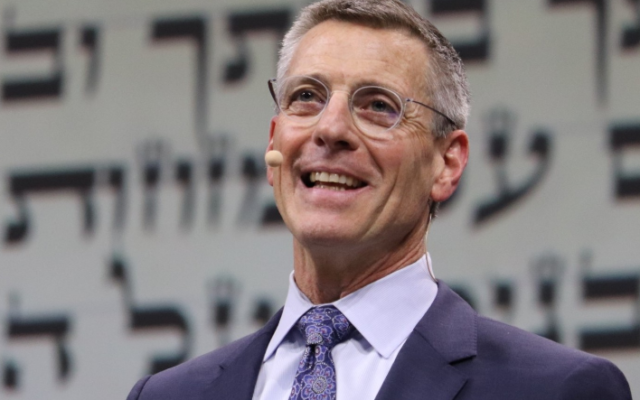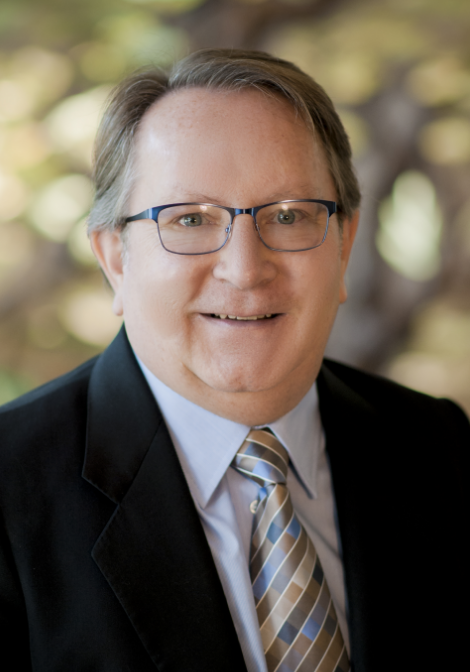Temple Sinai Leaders Guide National Reform Organizations
Leaders form strong partnership during difficult time.

On March 22, Rabbi Ron Segal, the senior rabbi of Temple Sinai in Sandy Springs, opened the annual convention of the Central Conference of American Rabbis. Segal, who is the Reform organization’s president, said in his remarks that “to be a rabbi at this moment feels a bit overwhelming.”
The three-day convention, which was to have been held in Baltimore, was hastily rescheduled as a virtual event, delivered entirely online.
Segal, who spoke to the group from his study at Temple Sinai, described the gathering and the present challenges the nation now faces as “a watershed moment in history, where the character and nature of future Jewish communities as well as where and how Jewish communities convene are being defined literally before our eyes.”
The rabbi, whose synagogue is also operating almost entirely through the use of internet technology, has suddenly had to grapple with a host of problems that he had never anticipated when he took office in April.
Likewise, the executive director of Temple Sinai, Jack Feldman, has seen the operational issues of running the temple change, literally, overnight. He is president of the National Association of Temple Administrators as well as the head of Atlanta’s umbrella organization for all local synagogue administrators.
Together, Segal and Feldman form a rare partnership that fuses local and national leadership under one synagogue roof.

We talked with each of them about the challenges of national leadership as well as the problems they faced in running what is one of the most prominent synagogues in the country.
AJT: Rabbi Segal, what is the biggest challenge of running a large synagogue mostly through the internet?
Segal: There is lots of brainstorming of this very thing. How can we maintain community in different programs through the use of technology? And we’re going to try and avail ourselves of all of these technological tools to try and be there and continue to build community.
Feldman: All of our worship services now are being livestreamed. We’re livestreaming Torah study. We want to make sure our members are able to connect with each other. And whether it’s sort of more in a social way or it’s in a spiritual way or some other way, we just want to make sure we maintain the connection between Temple Sinai and our members.
Segal: I think that the synagogue continues to play a critical lynchpin kind of role in this.
So even without being fixed physically or physically proximate, how do we socially and emotionally still maintain a sense of community and help people understand and appreciate the sense that they are cared for and that we’re here for them.
AJT: Jack, as a synagogue administrator, how difficult has the last few weeks been for you and those in your national organization?
Feldman: Last week we invited the entire membership of temple administrators to join us on a Zoom call to check in. And I described it as a complaint and kvetch call to give my colleagues nationally a chance to call and say, holy cow, what do I do about this?
So we have some executive directors who really almost seem to be hiding their head in the sand. And they’re not entirely sure how to handle the dozens and dozens and dozens of details that come with closing your office, moving worship online creatively and programing to keep members engaged. A lot of what I’m hearing is they’re stressed out and there’s just so much pressure to come up with quick answers.
AJT: Rabbis are no strangers to stress, Rabbi Segal, but these times are extraordinary even for them, and I would think for you.
Segal: I think that the concern is a legitimate one. I know that I am personally stressed. Because it’s not only the synagogue, it’s also of the issues involving the rabbinic conference as well and how we are navigating that.
I am doing my best to try and maintain a sense of equanimity and balance throughout all of this. I mean, it just, sort of, just is. And so there are some things that have been put in place to specifically help and be a source of centering for clergy.
Part of that process of centering is developing a sense of trust. Alan Morinis in his book “Everyday Holiness,” about the Jewish practice of Mussar, considers the different traits of the soul. Top of Form
And one of them is the Hebrew word “bitachon” which is best translated as trust.
We will continue to confront an array of whether it’s health crises or natural disasters, just, you know, tragedies in people’s lives, that’s just the messiness of the world.
I don’t know how some of our communities could not, ultimately, be adversely impacted by this. It’s inevitable. That’s going to be reality for the world as we learn how to navigate and find what is the new normal. After all, this is going to takes some time to figure out.
And that requires us to be a home of trust, just to be able to continue to serve. To appreciate that there is a sense of God’s presence and an underlying trust to help us move through all of this and to know that tomorrow has the potential to be better than today.



comments